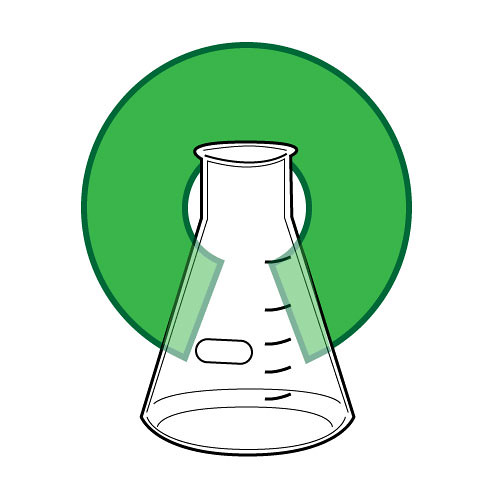Thousands of strangers working together, almost entirely online, to effectively solve an urgent, global challenge is remarkable—and it’s happening, right now. Recently, we published a post titled, “Open-Source Medical Hardware: What You Should Know and What You Can Do” examining the collaborative efforts by volunteer groups, universities, and research centers to solve the medical supply shortage caused by the COVID-19 pandemic through open-source medical hardware. While researching that story, we stumbled on the work ofJust One Giant Lab(JOGL).

JOGL is a research and innovation laboratory based in Paris, France that operates as an open and distributed mobilization platform for collaborative task solving. When the pandemic started, JOGL’s team recognized that their knowledge of community organizing and their open platform could help create and support many open-source projects. In response, they launched theOpenCovid19 Initiative, which now includes over 4000healthcare workers, engineers, designers, scientists, technologists, and everyday citizens. The vibrant, global community exchanges thousands of daily messages on hundreds ofprojectsthey hope will help save lives; from an open-source syringe to an algorithm that calculates the probability of infection.
To get a better understanding of JOGL’s mission, its community, and open source work, we reached out to Co-Founder and CTOLeo Blondel通过电子邮件。
Our interview has been lightly edited for clarity and length.
Q: What’s Just One Giant Lab’s (JOGL) mission?
Blondel:Our mission from the beginning has been to become the first full-fledged virtual laboratory where users can collaborate and innovate in order to solve problems and answer research questions—we want to be a central hub for open science and innovation. On the social side, we aim to help humanity fix its most urgent and important problems using open science, responsible innovation, and continuous learning. To that end, we partner with academic labs, companies, startups, foundations, NGOs, and public services to create participatory research programs for understanding and solving health, environmental, social, and humanitarian issues. On the technical side, we create and utilize a series of open-source applications to support the research and innovation activities generated by our users. To this aim, we have createda platformwhere users can launch their projects and collaborate openly with others to solve pressing needs.
Q: What are some initiatives JOGL is working on in regards to the medical supply shortage?
Blondel:目前,正在制定多项倡议。我们很快发现,很多工厂、众创空间、市民都有产能可用。由于开源项目的魅力,可用的原型数量惊人——例如,超过70种开放式面具的设计。因此,我们创建了一个项目来审查、测试和选择最相关、最安全、最符合要求、最容易由医学专家小组制造的设计。Armed with this idea, we created a partnership with the Paris Hospital Network (APHP) to organize avalidation challengeand identified four essential needs: face masks and face shields, syringe pumps, consumables for intubation, and ventilators. So far, theOpen-Source Syringe Pumpproject has been selected, and a team composed of medical doctors, engineers, and manufacturers are working to get the device refined with a foolproof user experience (UX) design and fail proof delivery system. Finally, a long-runningopen-source respiratorproject is currently in the testing phase to prove that the design is applicable in a medical setting.

Q: How is JOGL working across its entire community to help fill the medical supply shortage?
Blondel:JOGL acts as the central hub that connects citizens, amateurs, medical doctors, researchers, and policymakers. By creating a central repository of knowledge where people can not only document, but also discuss, and collaborate on open research and innovation we accelerate what would normally require established professional networks. An example is the aforementioned Open-Source Syringe Pump project, where JOGL connected the knowhow of the medical doctors at the Paris Hospital Network to engineers in the United States and manufacturers in China. JOGL not only provides the technical tools necessary for this to happen, but also the coordination team necessary to establish relationships between humans and ideas.
我们还创建并实施了一个新的开放管理方案,以便社区能够更容易地进行自我组织。为此,我们正在与优秀的社区成员合作,他们专长于管理、社会主义、整体治理和其他新的、令人兴奋的开放治理形式。我们希望这个beta测试将帮助我们建立新的和清晰的指南和模型,以创建更好的用户体验和用户流程,以便在未来快速跟踪类似的合作。
Q: Have you been surprised at the willingness of your community to volunteer their time and resources to help with these initiatives?

Blondel:I was not surprised. From a historical perspective, times of crisis have more often than not created enormous solidarity movements. Most recently, Hurricane Maria in Puerto Rico saw the regeneration of community links long lost. People flying back to help and thousands of people rebuilding infrastructure for free—a great read on this would be Naomi Klein’sThe Battle For Paradise. As an evolutionary biologist, I think that because we have evolved to be a social species and have empathy, it’s hard for us to stand inactive when we see misery. So I wasn’t surprised that people organized to help. Open communities are the foundational structure of JOGL, and we have always believed in their power to change the world. What did surprise us was the willingness of large institutions to trust initiatives like ours in a time of crisis and to try to establish partnerships with us to strengthen the community effort. We are now seeing a shift in how large actors are seeing open initiatives and I believe it’s for the best!
Q: What impact do you think the COVID-19 pandemic will have on open source and open science?
Blondel:I think that this pandemic happened at a time where open communities were “ripe.” What I mean by that is for a long time the open world was not very inclusive to the general public. However, thanks to, in part, the citizen science movement, there is general public enthusiasm for open research and innovation. It’s hard to predict the future, but I hope that big institutions like the World Health Organization (WHO) will start funding open science initiatives.
然而,开放科学运动仍然需要向世界证明自己。从本质上讲,计算机代码更容易被公开访问;你真的只需要一台电脑就可以进行开源编码项目。另一方面,科学要困难得多,因为缺乏途径,特别是在实验室和资源的物理途径方面。验证过程也可以作为一个障碍。Therefore, figuring out how to break down these barriers to scientific resources and increase the production of scientific work that is open access is something we are incentivized to work on right now—and something we will continue to work on for many years to come.
If you have a question regarding CC Licenses and how they apply to open-source hardware designs or other projects, please feel free to contact us atinfo@www.familygiver.com.




